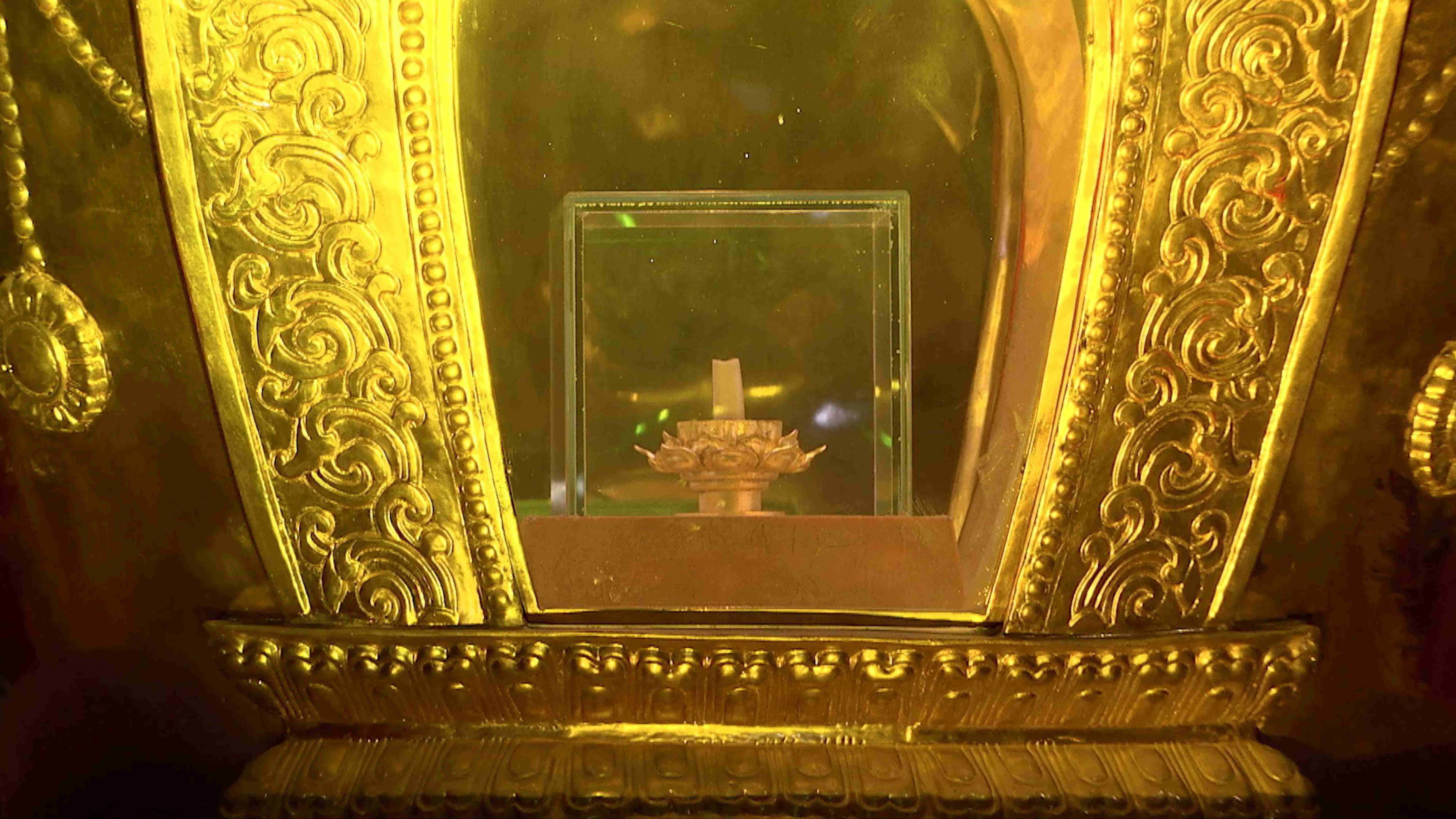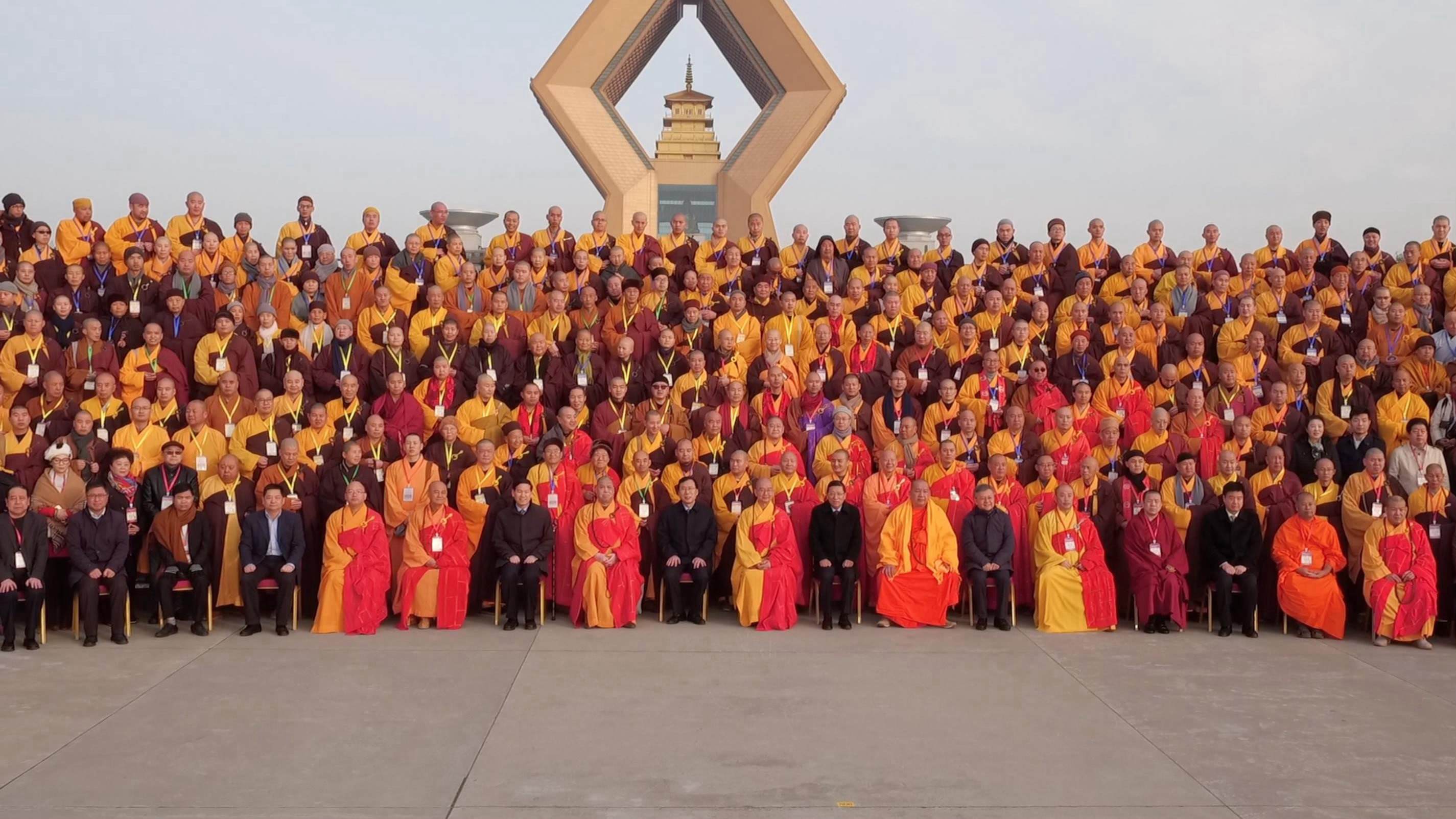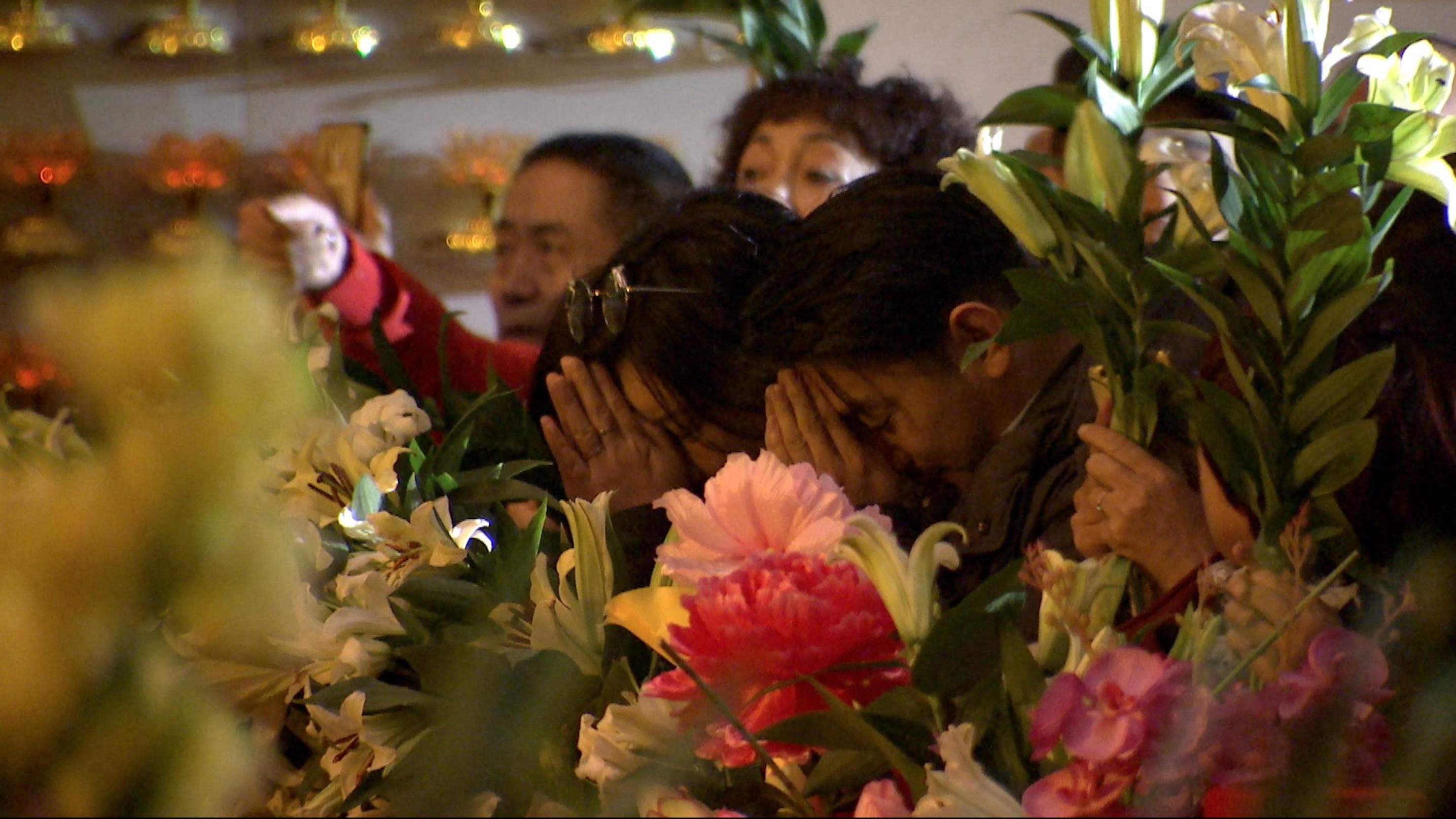
Culture
21:51, 23-Nov-2017
Buddhist relic venerated in Famen Temple
By Han Bin

Buddhists and laypeople alike from all over the world prayed for peace and promoted Buddha’s influence at Famen Temple in Baoji City, northwest China’s Shaanxi Province on Thursday, in a ceremony marking the 30th anniversary of the recovery of the Buddha’s finger relic.
Participants in the event took a family photo as a symbol of unity among different sects and nationalities, promising to make concerted efforts to promote Buddhism worldwide.
China is an atheist country but Buddhism is one of the key religions recognized by the state and it has government support due to its inspirational qualities.

Buddhists from around the world meet at Famen Temple in Baoji, northwest China's Shaanxi Province. / CGTN Photo
Buddhists from around the world meet at Famen Temple in Baoji, northwest China's Shaanxi Province. / CGTN Photo
Venerable Master Xue Cheng, president of the China Buddhists Association, said Chinese Buddhists need to dig into the valuable cultural meaning of Buddhism and find the historical significance of relics to bring these treasures to life and help Chinese Buddhism play a larger role internationally.
Since its introduction to China some 2,000 years ago from India, China has become the home of Buddhism, with the country home to the largest number of believers.
Many think that Chinese Buddhism can spread further to the outside world, as the country's influence continues to rise on the international stage.

Laypeople pray for Buddha’s relic at Famen Temple in Baoji, Shaanxi Province. / CGTN Photo
Laypeople pray for Buddha’s relic at Famen Temple in Baoji, Shaanxi Province. / CGTN Photo
China has three relics from Buddha. In addition to the Buddha’s finger relic in Famen Temple, there is a tooth in Beijing’s Lingguang Temple and a skull fragment in Nanjing’s Qixia Temple.
The śarīra, or Buddhist relic, had been kept in the underground sanctum of Famen Temple since 874.
It was removed in 1987 and is believed to be a finger bone from Śākyamuni, the founder of Buddhism.
His wisdom has helped many understand the nature of life and his followers all believe in the same Buddha.
The significance of such relics is beyond words for believers. For Buddhists, they are a rare chance to cultivate Buddhist teachings.
966km

SITEMAP
Copyright © 2018 CGTN. Beijing ICP prepared NO.16065310-3
Copyright © 2018 CGTN. Beijing ICP prepared NO.16065310-3